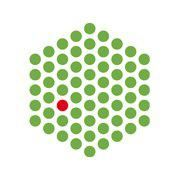 Proteomics bioinformatics
Proteomics bioinformatics
Date: 12 - 16 July 2021
Hands-on training in the basics of mass spectrometry, proteomics bioinformatics, and related methods and resources
Run jointly with Wellcome Genome Campus Advanced Courses and Scientific Conferences, this popular course provides hands-on training in the basics of mass spectrometry (MS) and proteomics bioinformatics approaches, search engines and post-processing software, quantitative proteomics approaches and related statistical concepts, MS proteomics data repositories and public data re-use, how to employ existing databases for protein analysis, perform the annotation of subsequent protein lists and the incorporation of information from molecular interaction and pathway databases.
Virtual course
Participants will learn via a mix of pre-recorded lectures, live presentations, and trainer Q&A sessions. Practical experience will be developed through group activities and trainer-led computational exercises. Live sessions will be delivered using Zoom with additional support and communication via Slack.
Pre-recorded material will be made available to registered participants prior to the start of the course and two weeks before the course, there will be a brief induction session. Computational practicals will run on EMBL-EBI's virtual training infrastructure, meaning participants will not require access to a powerful computer or install complex software on their own machines.
Participants will need to be available between the hours of 09:00-17:30 BST each day of the course. Trainers will be available to assist, answer questions, and further explain the analysis during these times.
Contact: Advanced courses - [email protected]
Keywords: PRIDE: The Proteomics Identifications Database, IntAct Molecular Interaction Database, Reactome pathways database, proteomics
Organizer: European Bioinformatics Institute (EBI)
Target audience: The course is aimed at research scientists with a minimum of a degree in a biological discipline, including laboratory and clinical staff, as well as specialists in related fields. The practical elements of the course will take raw data from a proteomics experiment and analyse it. Participants will be able to go from MS spectra to identifying and quantify peptides and finally to obtain lists of protein identifiers that can be analysed further using a wide range of resources. The final aim is to provide attendees with the practical bioinformatics knowledge they need to go back to the lab and process their own data when collected.
Capacity: 30
Event types:
- Workshops and courses
Scientific topics: Proteomics
Activity log

 EMBL-EBI
EMBL-EBI
